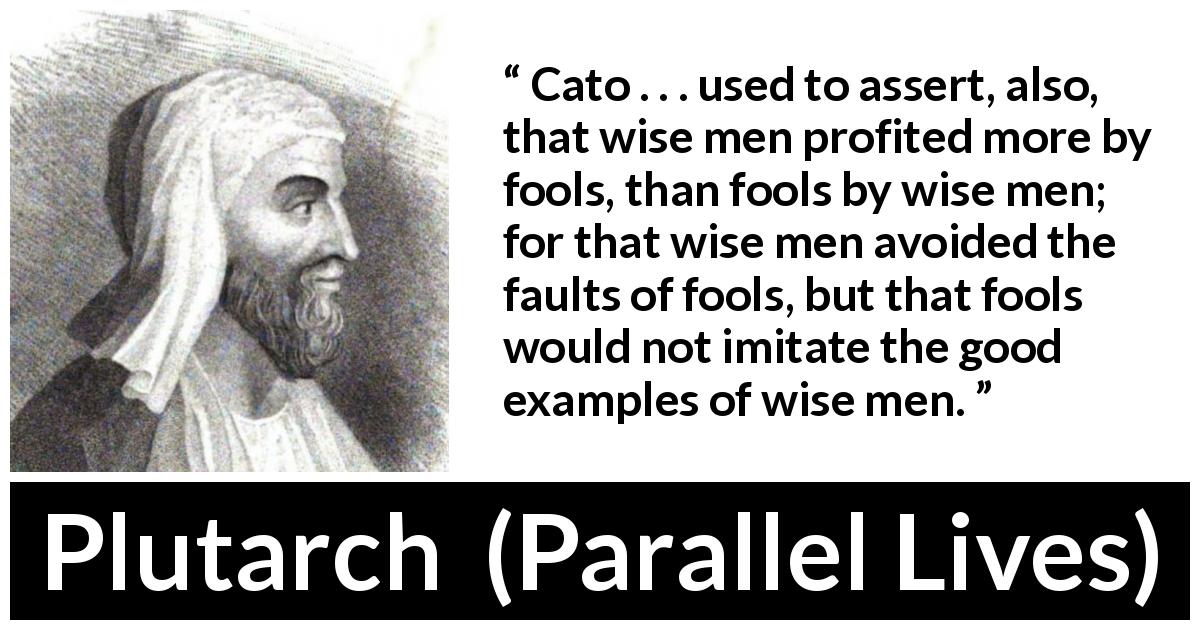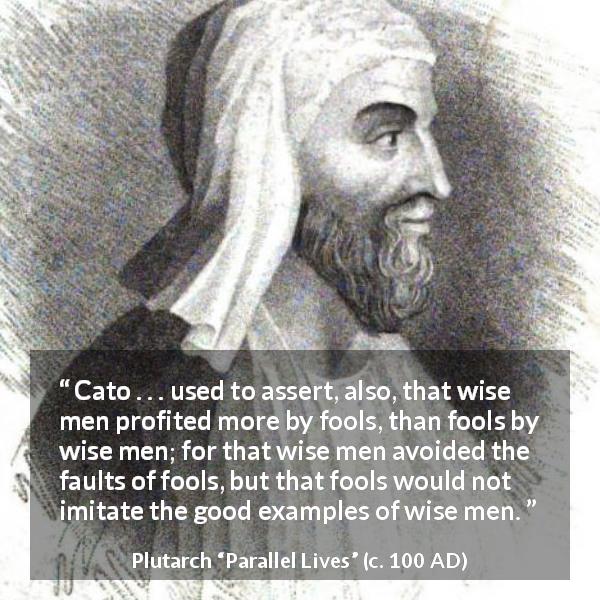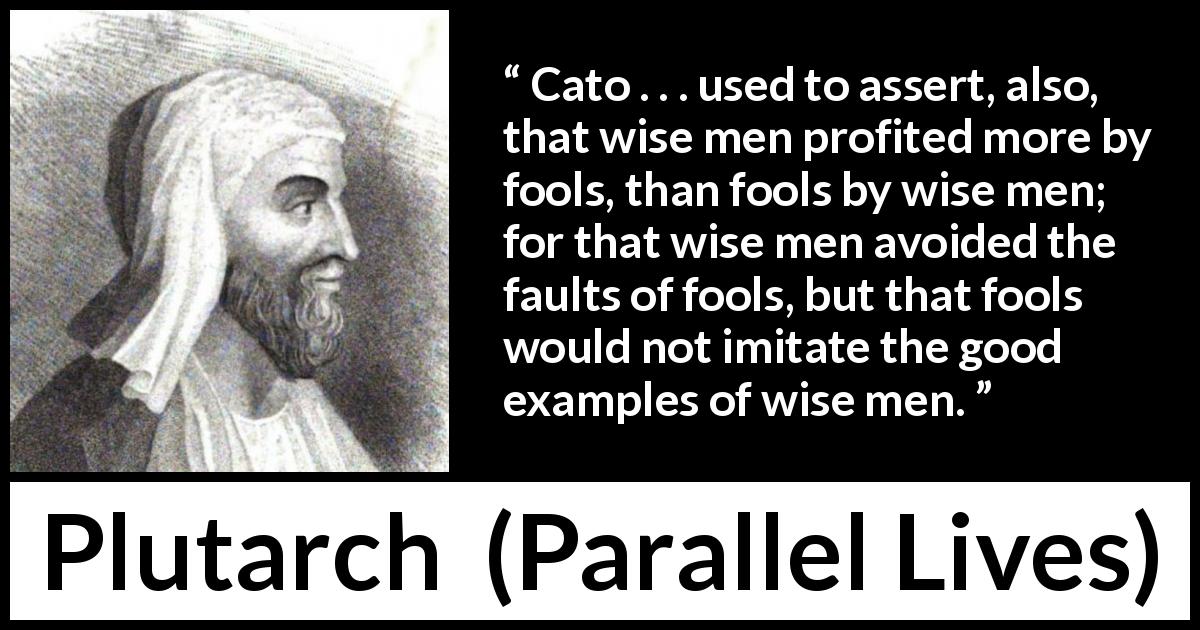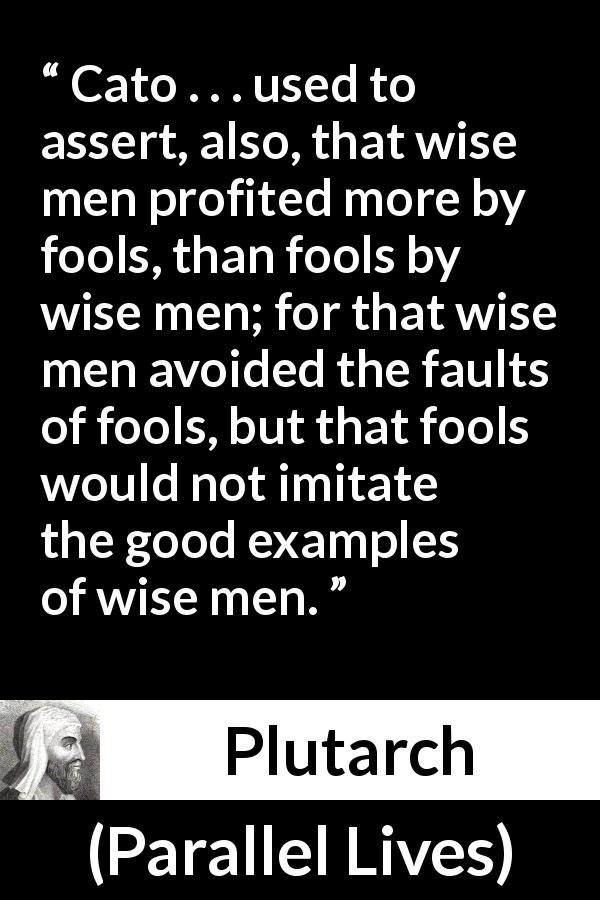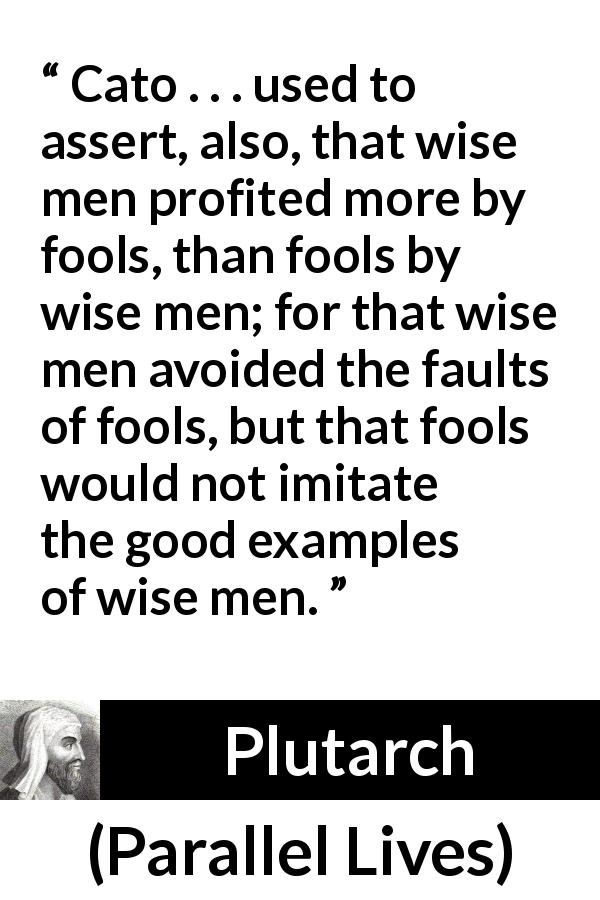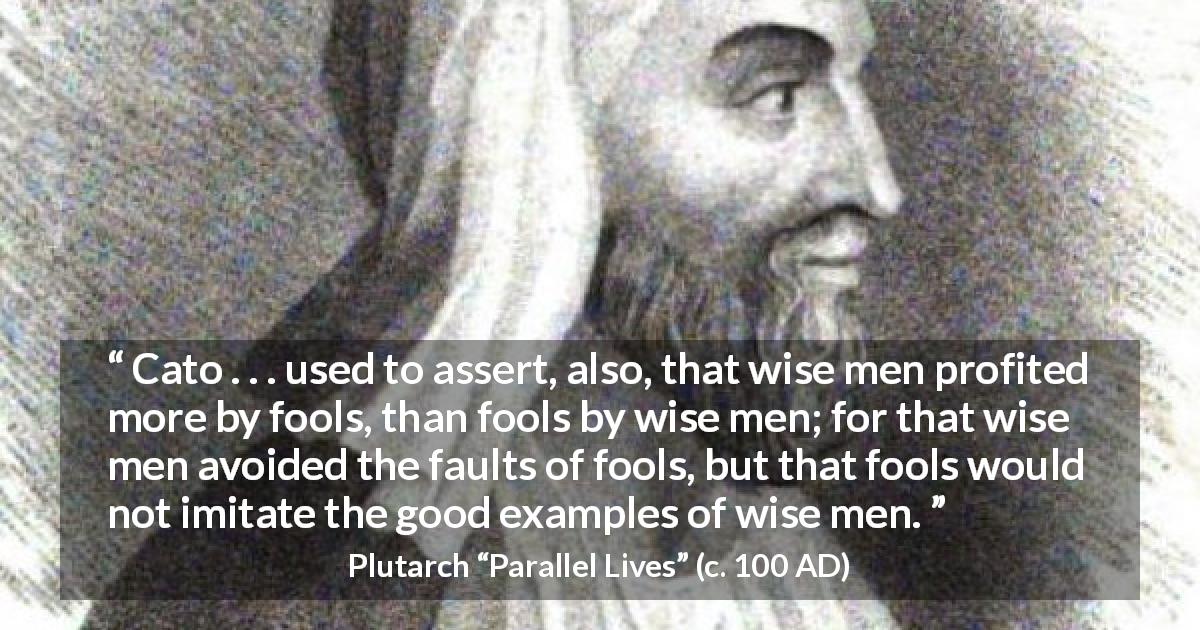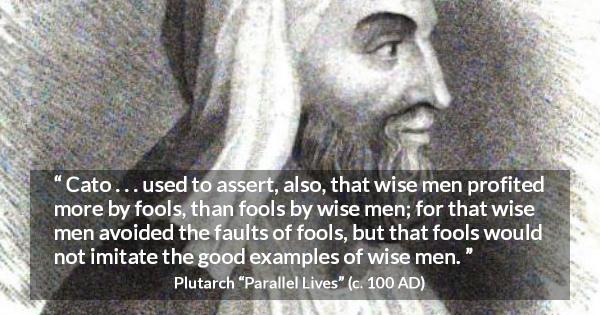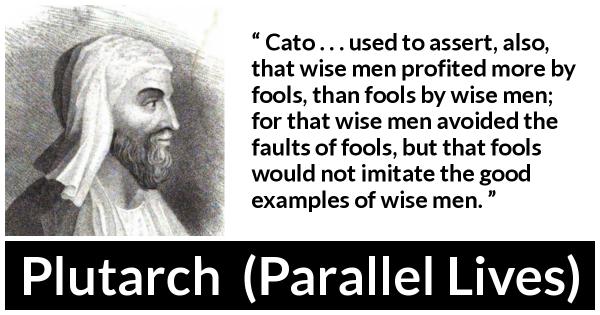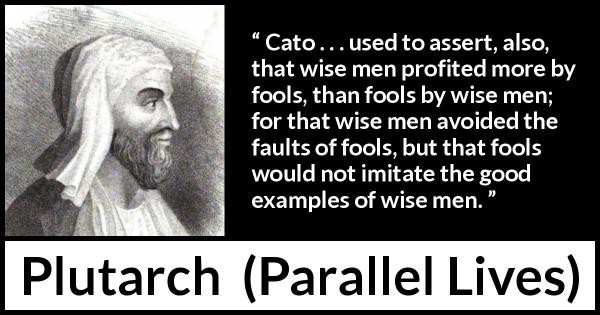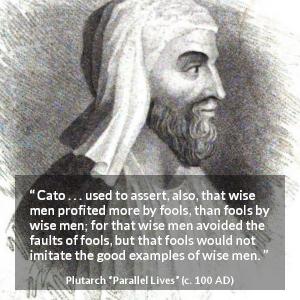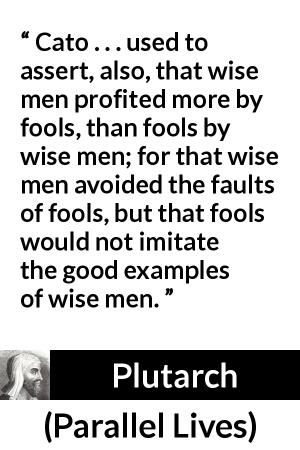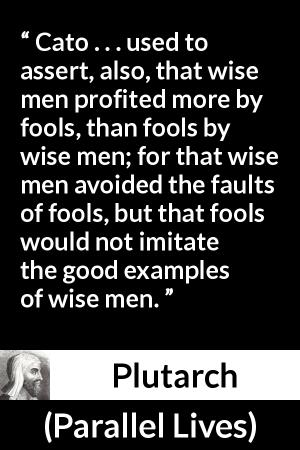“ Cato . . . used to assert, also, that wise men profited more by fools, than fools by wise men; for that wise men avoided the faults of fools, but that fools would not imitate the good examples of wise men. ”
Plutarch, Parallel Lives (c. 100 AD). copy citation
| Author | Plutarch |
|---|---|
| Source | Parallel Lives |
| Topic | wisdom foolishness example |
| Date | c. 100 AD |
| Language | English |
| Reference | |
| Note | Translated by A. H. Clough |
| Weblink | http://www.gutenberg.org/files/674/674-h/674-h.htm |
Context
“The senate voting their return, it seems that a few days after Polybius's friends further wished that it should be moved in the senate, that the said banished persons should receive again the honors which they first had in Achaea; and, to this purpose, they sounded Cato for his opinion; but he, smiling, answered, that Polybius, Ulysses-like, having escaped out of the Cyclops' den, wanted, it would seem, to go back again because he had left his cap and belt behind him. He used to assert, also, that wise men profited more by fools, than fools by wise men; for that wise men avoided the faults of fools, but that fools would not imitate the good examples of wise men. He would profess, too, that he was more taken with young men that blushed, than with those who looked pale; and that he never desired to have a soldier that moved his hands too much in marching, and his feet too much in fighting; or snored louder than he shouted.”
source
